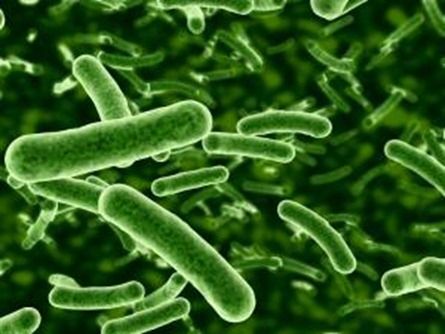Do Probiotics Help You?

If you watch television for any significant length of time, you're bound to see commercials advertising probiotics. These commercials claim that probiotics immediately boost your immune system and ward away ailments. If you read health blogs, you might see mentions of gut flora and "good bacteria." If you're wondering what that means and if probiotics are worth the money, don't feel bad. The answer, as you will see, is complicated.
To understand what probiotics claim to do, it is important to understand how your digestive tract interacts with your immune system. Believe it or not, there are between 10x and 100x more bacterial and yeast cells on you and in you, than there are actual human cells. Similarly, more of your genome sequence is devoted to viral DNA than to what makes you...well.. you.
Suffice it to say humans are microbe-transporting machines. Despite this, humans are born mostly free of bacteria. Within weeks of being born, humans acquire bacteria. Most of your early bacteria are acquired from your parents, with the remaining small amount you acquire during these early months being from food and liquid intake.
You are what you eat. What you eat determines your personal bacteria makeup.
Each part of your body is a niche for various forms of bacteria. These different strains of bacteria bind to local tissues and grow. Some are more successful than others, depending on where they're at. E. Coli has proteins that work well with adhering to your bladder and causing UTIs. Gonorrhea is excellent at adhering to your urethra cells and causing an infection. Some types of strep adhere to your cheek, while others prefer your throat.
Organisms that thrive in an oxygen-poor environment are anaerobes. In your colon, there are hundreds of species of bacteria, with 99.9% being anaerobes. As food for thought, there are about 10^11 anaerobes per gram of poop. The predominant species of bacteria in your colon are Bacteroidetes, Firmicutes, Actinobacteria, and Proteobacteria species. This is important to remember because it will come up later.

These bacteria strains, both good and bad, have been evolving with us. We can trace back some microbiology that lives in humans for thousands to millions of years, depending on the breed. For example, microorganisms can produce vitamin K and also help with the digestion of food.
Bowel flora blocks potentially harmful organisms by physically blocking them from having a location to adhere to. Disturbing normal bowel flora from antibiotics or other chemicals can cause upsets to the affected niches. These upsets can make you feel sick.
What are Probiotics?
Probiotics are supplements that claim to contain bacterial strains found in the human digestive tract. Since probiotics are generally unregulated, the amount, quality, and type of bacterial strains may not be accurately reflected on the label. Probiotics usually contain lactobacillus, bifidobacterium, and/or saccharomyces boulardii and proprietary blends. These bacteria must be alive for the probiotic to have any significant effect. Dead bacteria aren't going to colonize your bowels, after all.
While bowel flora does normally contain lactobacillus, Bifidobacterium, and saccharomyces boulardii, these critters are at relatively low levels compared to the four main types of bowel bacteria discussed above. Probiotics generally contain just a few bacteria stains which are generally not the normal bowel flora strains. This means that they are not effective at restoring normal bowel flora as the normal flora are not present in the pill. Complicating this is that probiotics do not always contain what they are labeled as. There have been several studies that have found that either organisms are not accurately labeled or were dead cultures. Additionally, unexpected organisms have also been found.
As discussed earlier, using large amounts of antibiotics can wipe out your beneficial bowel flora leaving room for more harmful types to grow. Diarrhea can occur after a heavy round of antibiotics due to the normal flora no longer present. This allows for other less beneficial types of bacteria to move into the vacant space.
Can probiotics help with that? Sometimes. It depends on the situation. We'll discuss that in a minute.
Treatment and prevention of Diarrhea
There are 3 kinds of diarrhea where probiotics have been studied.
Antibiotics based: Probiotics have some weak evidence that they can assist in restoring normal bowel flora. Probiotics, as an analogy for this case, are like having a rainforest burn down and then trying to replace it with a single type of bush planted in rows. It's better than nothing for some animals that used to live there but not for most. In the cases where it provides benefits, probiotics have some evidence to show they can restore some strains of gut flora, which reduces diarrhea severity. As we discussed earlier, probiotics only have a small number of minor strains they can replenish.
Overgrowth-based: In the case of bowel flora overgrowth-related diarrhea, the data is less clear. Some efficacy has been shown in some cases with saccharomyces boulardii-based probiotics. Further studies are required to say anything for sure either way.
Traveler's based: Traveler's Diarrhea is due to consumption of E. Coli in foreign water supplies that your body isn't used to. There have been some studies that show some benefits while others do not. Meta-analysis of these studies has not shown any clear efficacy. As always, more studies are needed.
Overall, bulk data suggests some benefit for the treatment of diarrhea.
However, there is greater data to show the efficacy of stool transplants. Whenever gut flora is disturbed, the most efficacious way to restore it is via stool transplant from a spouse or family member. The relationship is important, as the closer you are, the closer your diets are likely to be.
Treatment and Prevention of Yeast Infection
For this, I'll paraphrase a recent meta-analysis on the topic:
"The results of some clinical trials support some efficacy of lactobacilli although the small candidate sizes and a small number of trials combined with unreliable study methods results in there being no clear answer"
This is a common theme as we advance.
Treatment and Prevention of Crohn's Disease
Insufficient studies have been conducted.
Treatment and Prevention of Ulcerative Colitis
Insufficient studies have been conducted.
Treatment and Prevention of Irritable bowel syndrome
Some improvement of quality of life in some patients in some trials has been seen, but no benefit to symptom reduction has been observed.
Treatment and Prevention of Parasitic Infections
Insufficient studies have been conducted.
Boosting the Immune System
Ah, the nebulous term "boosting the immune system" strikes again! This is a hard-to-define term since an overactive immune system is extraordinarily bad for you. White blood cells attacking healthy cells.. well... we don't want that.
Do probiotics improve immune function? There is a difference between overgrowth symptoms and having something wrong with your immune system. 70% of your immune system can be considered to be in your gut. Since our food supply is often tainted throughout most of human history, it makes sense that our immune system would spend a lot of time there.
However, probiotic methods of action claimed by manufacturers are often contradictory even within the same label. The data supplied on probiotic manufacturing websites may seem convincing; however, it often is technobabble.
For example, one manufacturer states that they have a proven track record of increasing their trademarked bacterial strains in stool by x% as proof of immune system improvement. This might sound impressive; however, it is a fairly meaningless statement. If you eat something, you're going to poop it out. This type of statement does not provide valuable data to the consumer. Another manufacturer claims to "modulate the immune system response by improving killer cell response during exercise." In this particular circumstance, the manufacturer found one biological marker that increased during one particular portion of a study by about 1%. This was within the margin of error for the study.
More importantly, if you force-feed any animal (or person!) a bacteria pathogen, you get an immunological response called inflammation. This can allow for an improved subsequent immune response; however, it's not very good for you. Chronic inflammation has been shown to have an increased risk of stroke and heart failure. This also allows for an anti-inflammation period following the equilibrium response, where the body will be more vulnerable. Additionally, there is a small risk of introducing live foreign bacteria into the bloodstream during some inflammation conditions where the bowel is raw and bloody. You wouldn't want to get a cut on your hand and then rub it in poop, would you?
Overall, "boosting the immune system" is a fairly meaningless statement. Manufacturers that claim to do this often use poor or irrelevant results to support their advertising.
Can Probiotics Still Help In The Long Term?
As we discussed earlier, the bacteria in your bowels result from what you eat. Once you stop taking probiotics, you'll find that anything the probiotics put there will be excreted in short order. To gain lasting benefits, you'd have to take those capsules permanently. However, we've discussed how that can cause major medical complications.
Concluding Thoughts
Overall, probiotics have some side effects when used. There's a small amount of efficacy for treating diarrhea. Otherwise, you're not going to see very much impact.
Disclaimer
If studies have shown efficacy that is not mentioned, reply in the Comments section, and I'll update the article. Generally, we're looking for numerous small studies with multiple meta-analyses or several large studies from different individuals.





Member discussion